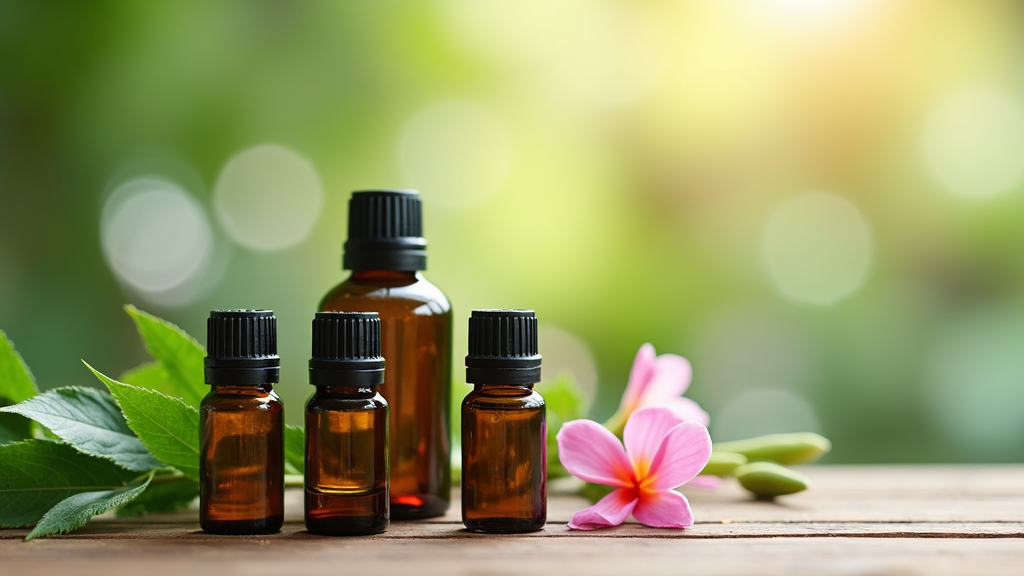Overthinking isn’t just a distraction; it can keep your mind running in circles, making it harder to relax or focus. I’ve experienced those moments when worries pile up, and my mind jumps from one problem to another before I’ve even had breakfast. For me, essential oils have become a helpful way to create moments of calm, break loops of restless thoughts, and find a little mental breathing room, right at home. If you’re curious about how essential oils might help you manage overthinking, here’s what I’ve learned along the way.

How Essential Oils Can Help with Overthinking
Essential oils are concentrated plant extracts that are often used for their soothing scents. Aromatherapy, which is the practice of using these scents for wellness, goes back thousands of years. Plenty of people use essential oils to help manage stress, recharge energy, or develop better focus. For those who tend to overthink, these natural scents can be a gentle nudge toward feeling more grounded and present.
When I notice that I’m stuck in a thought spiral, certain scents help signal to my brain that it’s okay to slow down. Science backs up this experience; research has shown that our sense of smell connects directly to brain areas involved in mood and emotion. While essential oils aren’t a cure for anxious thoughts, they’re pretty handy for creating calming rituals or setting a more peaceful mood.
Here is a link to find all the essential oils:
https://referral.doterra.me/4740777
Popular Essential Oils for Managing Excessive Thinking
Not all essential oils work the same way, so it’s worth finding scents that fit your mood or what you’re hoping to feel. Here are some favorites I like to reach for when my mind’s buzzing:
- Lavender: Known for its relaxing scent, lavender is one I turn to when I need to unwind after a long day or before bed. It’s probably the most popular choice for stress, anxiety, or just those moments when thoughts race nonstop. Studies suggest lavender oil may help lower heart rate and promote a sense of chill.
- Bergamot: The bright, citrusy scent of bergamot lifts my mood and helps melt away tense feelings. A few drops in a diffuser can bring some lightness into a heavy-thinking mind.
- Frankincense: This oil has a deep, earthy aroma and is often used for meditation or grounding. When I want to slow down scattered thoughts and connect with the present, frankincense feels like a mental anchor.
- Chamomile: Roman chamomile, with its sweet, apple-like aroma, is another go-to for gentle relaxation. It pairs well with lavender for a calming blend.
- Clary Sage: With an herbaceous scent, clary sage offers a bit of mental clarity when everything feels tangled. It’s often used for supporting emotional balance, which can be super important if you tend to overthink.
Quick Ways to Use Essential Oils for a Clearer Mind
There’s no one size fits all when it comes to using essential oils, but here are some simple ways that have worked well for me:
- Diffusing: Add a few drops of your favorite oil to an essential oil diffuser. Let the scent fill a room while you read, work, or just chill out for a few minutes.
- Palm Inhalation: Put one drop of oil (like lavender or frankincense) in your hands, rub your palms together, and take a slow, deep breath. This quick hack can bring you back to the present moment pretty fast.
- Roll-Ons: Mix a little oil with a carrier (like coconut or jojoba oil) and apply it to pulse points—wrists, behind the ears, or neck. I find this handy to carry in my bag for stressful commutes or meetings.
- Bath Soaks: Add a few drops (diluted in carrier oil or Epsom salts) to a warm bath. The steam helps the scent linger, and the bath itself is a way to hit pause on looping thoughts.
- Aromatherapy Jewelry: Wearing a lava bead bracelet or aromatherapy necklace lets you enjoy calming scents without needing a diffuser, which is nice if you’re on the go.
Things to Consider Before Using Essential Oils
Essential oils are generally safe for most people, but it’s important to use them in a smart way, especially if you’re new to this. Here’s what I keep in mind each time I buy or try something new:
- Quality Matters: Not all essential oils are the same. I always look for oils labeled as 100% pure, therapeutic grade, and I check that they come from reputable brands. Synthetic fragrances won’t offer the same calming effects.
- Dilution: Never apply essential oils directly to your skin without mixing them with a carrier oil—undiluted oils can cause irritation.
- Allergies and Sensitivities: If you have allergies, asthma, or sensitivities, do a patch test or check with your doctor first. Some oils can irritate skin, especially citrus oils if you plan to spend time in the sun.
- Pets and Kids: Essential oils can be harmful to pets and young children. I always diffuse with caution and keep bottles away from curious paws or little hands.
- Avoiding Overuse: More isn’t always better. Using strong, concentrated oils for hours on end can actually become overwhelming. I stick to a few drops at a time and take breaks.
Quality Matters
Choosing the right brand is really important since not every “essential oil” is actually what it claims to be. Instead of picking the cheapest option, I look for transparency; things like plant source, extraction method, and thirdparty testing are good signs. Reading reviews and checking for certifications also helps me feel confident about what I’m diffusing at home.
Safe Use and Personal Sensitivities
I always dilute oils when applying them to the skin. A good rule is about one drop of essential oil to one teaspoon of carrier oil for adults. Even then, I test a tiny amount first. Stronger oils like cinnamon or peppermint need even more dilution.
Pets, Children, and Shared Spaces
I have a dog, and some essential oils (like tea tree and eucalyptus) can be dangerous to pets if diffused or spilled nearby. For homes with kids or animals, it’s best to use milder oils in very small amounts or skip them altogether in common areas. If you live in a shared space, ask others if they have sensitivities to scents before diffusing anything.
Advanced Aromatherapy Tips for Overthinkers
There are a few ways to make essential oils even more effective in helping calm a racing mind:
Mindful Breathing and Oils: Pairing deep breathing with calming scents can turn up the mental break your brain gets. I’ll often close my eyes, inhale the scent, and focus only on the sensation of breathing out for a minute or two.
Habit Stacking: Add essential oils to routines you already follow, like rolling some on your wrists before journaling, or starting a diffuser before settling into a nightly meditation. This helps train your mind to associate certain scents with relaxing activities.
Creating a Dedicated Space: I set up a specific spot in my home for relaxation; just a comfy chair, a diffuser, and a cozy blanket. When I feel myself spiraling into overthinking, stepping into this space and turning on my diffuser signals to my brain that it’s time to slow down.
Real-World Uses and Everyday Scenarios
Here are a few ways I’ve used essential oils to hush the mental chatter:
- Work Breaks: During a busy day, I pause for two minutes, put a drop of oil on a tissue, and breathe in deeply. It helps me switch gears between tasks and come back with a little more clarity.
- Overwhelming Days: When everything feels too much, I set up my diffuser with a calming blend and take a quick stretch. The scent acts as a cue for my mind to reboot.
- Before Bed: Applying lavender or chamomile oil on my pillow or in a diffuser helps me wind down faster, making it easier to fall asleep after a long day of analyzing everything under the sun.
- Creative Blocks: Oils like rosemary or eucalyptus wake up my brain without making my thoughts race.
Frequently Asked Questions
Curious minds often have questions about using essential oils for overthinking. Here are some answers based on what I’ve learned and tried myself:
Which oil is best for calming thoughts?
Lavender is the most popular choice for calming thoughts, but I also recommend trying bergamot or frankincense since they balance relaxation with gentle clarity.
Can I blend different oils together?
Absolutely. I love mixing lavender and bergamot for a soothing effect, or chamomile and clary sage when I want extra brain calming power. Some blends work better than others, so experiment to find what fits your mood best.
How long should I use my diffuser?
Short sessions, about 30 to 60 minutes, are usually enough to fill a room with scent and support relaxation. I avoid running a diffuser all day, both for safety and because my nose gets used to the smell.
Are there side effects?
Most people have no problems when using essential oils properly and diluted, but it’s smart to watch for skin irritation or headaches, especially if you’re new to strong scents.
Final Thoughts: Creating a Calmer Mind with Essential Oils
Essential oils aren’t a replacement for therapy or medical care, but they’re a simple way to add relaxation to your daily routine. They remind me that small actions can break the cycle of overthinking and help carve out moments of peace, even on tough days. If you’re looking for gentle, natural ways to calm the mind and savor more present moments, it’s definitely worth checking out what essential oils have to offer.
